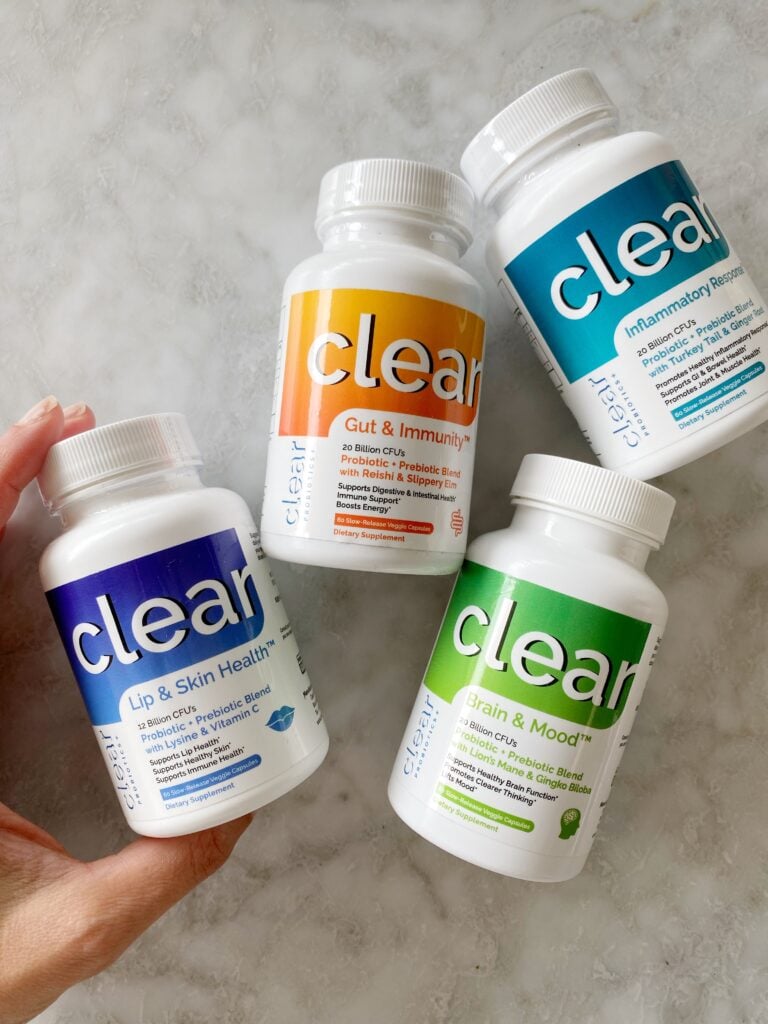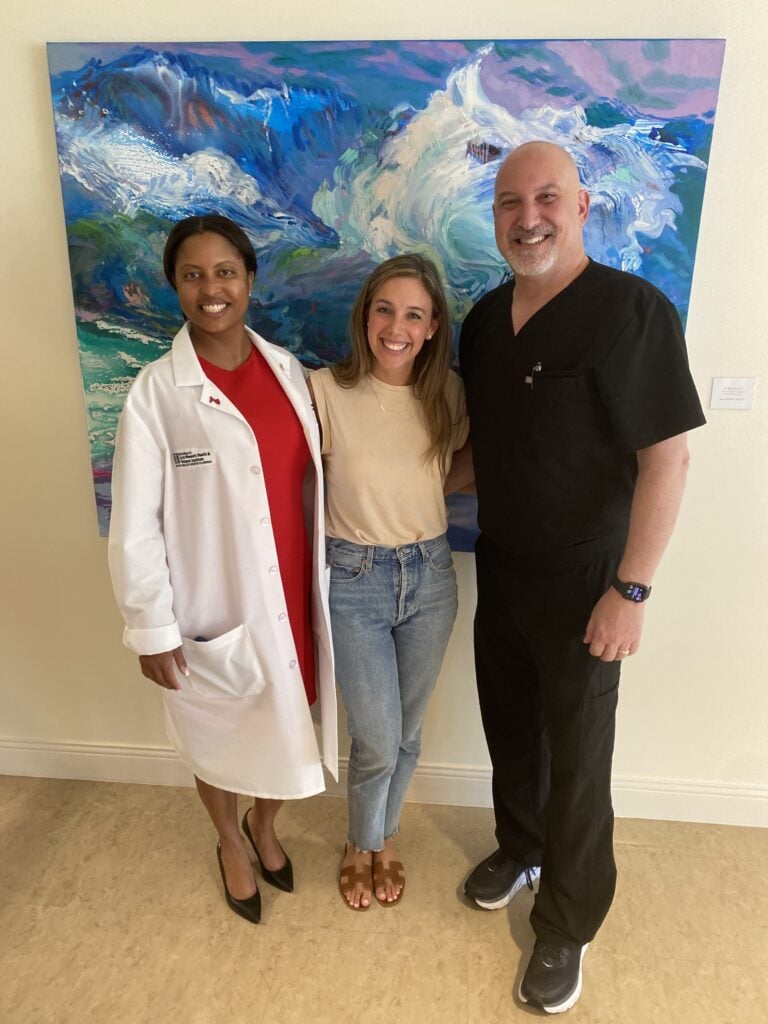Be your own advocate for your health
I had a very educational conversation last week about empowering people to be an advocate for their own health. I spoke with a primary care physician, Dr. Raymond Westbrook from Baptist Health South Florida; a registered nurse, Chay Shavrick from the Lynn Women’s Health & Wellness Institute in Boca Raton; and Taylor Walker, a CPT and Pre/Postnatal CES. I find this topic to be so important, so I wanted to recap what we discussed in today’s post.
We are all such fierce advocates for the health of our families and loved ones, but it’s equally as important to be an advocate for our own health. We can play such a crucial role in our own health care by being intuitive, tuning in with our bodies, knowing when something is ‘off’ or not right, and getting a second opinion. Learning how to pinpoint when something “isn’t right” can help ourselves, as a patient, gain a better understanding of our health while also giving us the confidence we need to make informed decisions.
Moms often put everyone else first before themselves, but it’s so important to take care of yourself too. My takeaway from this is that one of the ways you can be your own best advocate is to have a friend, family member or support group to hold you accountable as well as trusting your gut instinct and intuition. I believe that intuition plays such a crucial role when it comes time to book certain doctor appointments. Sometimes it can be hard to put your finger on it, but you just know that something doesn’t feel quite right. Make sure to go into your doctors appointment with a list of questions and do your own research beforehand with only reputable sources.
I mentioned to Chay that as a nurse navigator, she is the patient’s advocate for care. She’s there for them throughout every step of the way which is such a wonderful and rewarding role. After they leave the hospital, patients are now responsible to be their own advocates, which can be overwhelming. Chay’s advice on how you can be the best health advocate for yourself is that it doesn’t matter if you ‘have a village’, but what matters is that you have just one person to hold you accountable and that will listen to you and believe you. It’s not the number of people you have, it’s just having that one right person. If you know something is not right you just need that one person to support you.
When Dr. Westbrook was asked what are some questions that patients should be asking their doctors during their visit he noted that there is no question off limits. He suggests making a list beforehand so you don’t forget what you’re concerned about. There’s often so many questions racing through your head before and during an appointment, so by writing down any questions prior to your appointment you come prepared. He also mentioned that it’s important to discuss your age and which screenings are recommended for your age at that time. This way the doctor can educate you on what’s needed for your age range so it doesn’t get missed. These screenings are so important and can prevent severe illness by catching things early. By catching something early with a screening you can adjust your lifestyle so it doesn’t lead to problems down the road.
Dr. Westbrook says that at an absolute minimum everyone should get a yearly physical if you’re healthy. At your yearly physical your doctor can look you over from head to toe, check your blood pressure and run labs to check your blood sugar, blood count, cholesterol, urinalysis, thyroid, etc. If you have a condition like high cholesterol or diabetes you will need to see your doctor more often; around every 3 – 6 months. As you get older there will be more things to do like mammograms, bone density tests and colonoscopies.
During the conversation I was asked a question that I thought was such an important point to touch on: How have I been able to manage the role of being both the advocate for my own health and my children? As moms, we know how important it is to be not only our own health advocate, but also an advocate for our kids. This can be a difficult role especially when it comes to our little ones. I believe that mother’s know their children best and have the gut intuition when something is wrong. It’s so important to tune into that feeling and when you know something is wrong you must advocate for your child. I think it’s so important to get a second opinion if you’re sent home being told that nothing is wrong, but you know in your heart that something is not right. Always push until you get answers.
Sometimes Google can be our own worst enemy! I know firsthand that I’ve Googled things and within a few minutes thought either myself or my child had a life-threatening condition or something so serious, and then it turned out to be just something minor. Dr. Westbrook suggests doing research before your appointment with only reputable sources. Being informed is great and important before an appointment. Go to a reliable site like www.webmd.com for example because it’s a credible source. This way you know what questions to ask your physician before going in. Also know that before going down the research rabbit hole that there are a lot of unreliable sources out there, so make sure you’re only sticking to reliable and credible sources.
When dealing with certain health issues, finding the best treatment plan for yourself can be stressful, and there’s no “one size fits all” approach. When Dr. Westbrook was asked when should you definitely get a second opinion he mentioned the following:
- If your physician won’t answer your questions thoroughly or is making you feel rushed.
- With any serious diagnosis you should always get a second opinion.
- This doesn’t necessarily mean you’re going to change doctors, but the second opinion is important.
Another really important thing I learned during this conversation was to go into your doctors appointment prepared. This means bringing in your medical history, previous bloodwork and knowing your family history. When you have all your notes, questions, medical history and previous bloodwork when you see your doctor you don’t have to back-peddle and this makes the whole process more efficient for both you and the doctor.
Some resources that are available for moms via Baptist Health are:
- Weekly lectures, support groups, lactation help, PSI for mental health
- “Mommy Matters” series and other support classes and resources virtually: BRRH.com/Gutin
- For a list of even more classes and information, visit https://mbs.events/online/ or email Programs@BaptistHealth.net
I found this discussion to be so informative and the information that we were given was so helpful. Here is the link to the live conversation if you’d like to watch: https://www.instagram.com/p/CbvBeWaqUx9/







